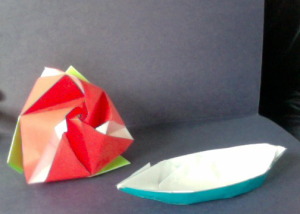It’s a line from Lemony Snicket’s A Series of Unfortunate Events. It’s about the many libraries that can be found in that thirteen book series, and about finding a safe place. The series is full of adventures, with people using their talents and knowledge for both good and evil ends. Read one way, it’s a well written story about three orphans trying to escape the nefarious plots of Count Olaf. Read another, it’s a parable about ethics, moving from a very simple “some people are all good, and others are all bad” understanding to a more nuanced “good people in desperate circumstances may act in hurtful ways, and bad people may not be irredeemable evil.”
From The Bad Beginning to The End, the Baudelaire orphans find themselves in libraries of all kinds. They are able to save themselves many times by using something they found in books. In the tenth book a stranger asks them to trust him by saying this:
“I know that having a good vocabulary doesn’t guarantee that I’m a good person,” the boy said. “But it does mean I’ve read a great deal. And in my experience, well-read people are less likely to be evil.” (Lemony Snicket, The Slippery Slope, New York: HarperCollins publishers, 2003, p. 95)
Are well-read people less likely to be evil? Can someone who reads Othello and Our Town, who is familiar with Gatsby and Aragorn, who has seen The Very Hungry Caterpillar change into a butterfly and The Road Not Taken make all the difference easily disregard the sanctity of life in all its forms? In The Slippery Slope, Lemony Snicket answers it through Violet and Klaus Baudelaire:
Neither of them were entirely convinced by what the masked scout had said. There are, of course, plenty of evil people who have read a great many books, and plenty of very kind people who seem to have found some other method of spending their time. But the Baudelaires knew that there was a kind of truth to the boy’s statement…(pp. 95-96)
What makes a good life? What does evil look like? Is there a God? Where did this universe come from? What is truth? Giant questions that have been answered in many ways throughout history. These and so many more are waiting in libraries around the world, quiet places that allow us to hear the whispered answers of the past, understand our own time, and dream about a better future.
Knowledge is not the same as wisdom, and information can be used for evil as well as good; words can inspire compassion and sacrifice in the service of others, and can be used to justify hatred and murder. But I think there is some kind of truth to the boy’s statement, too. Those who spend time in a library are bound to find themselves in the stacks. Where the world is quiet, the soul is likely to speak peace more often than violence.
Let me know what you think…

